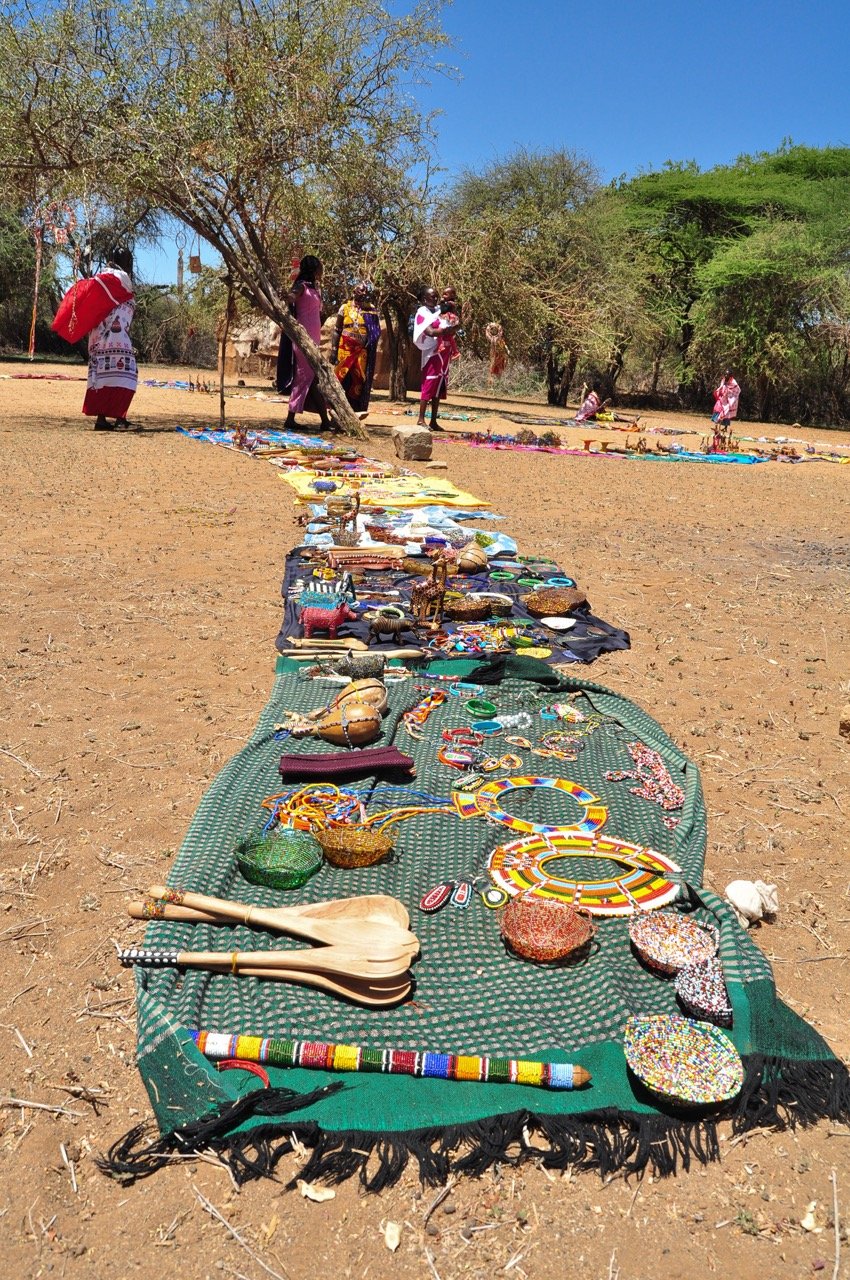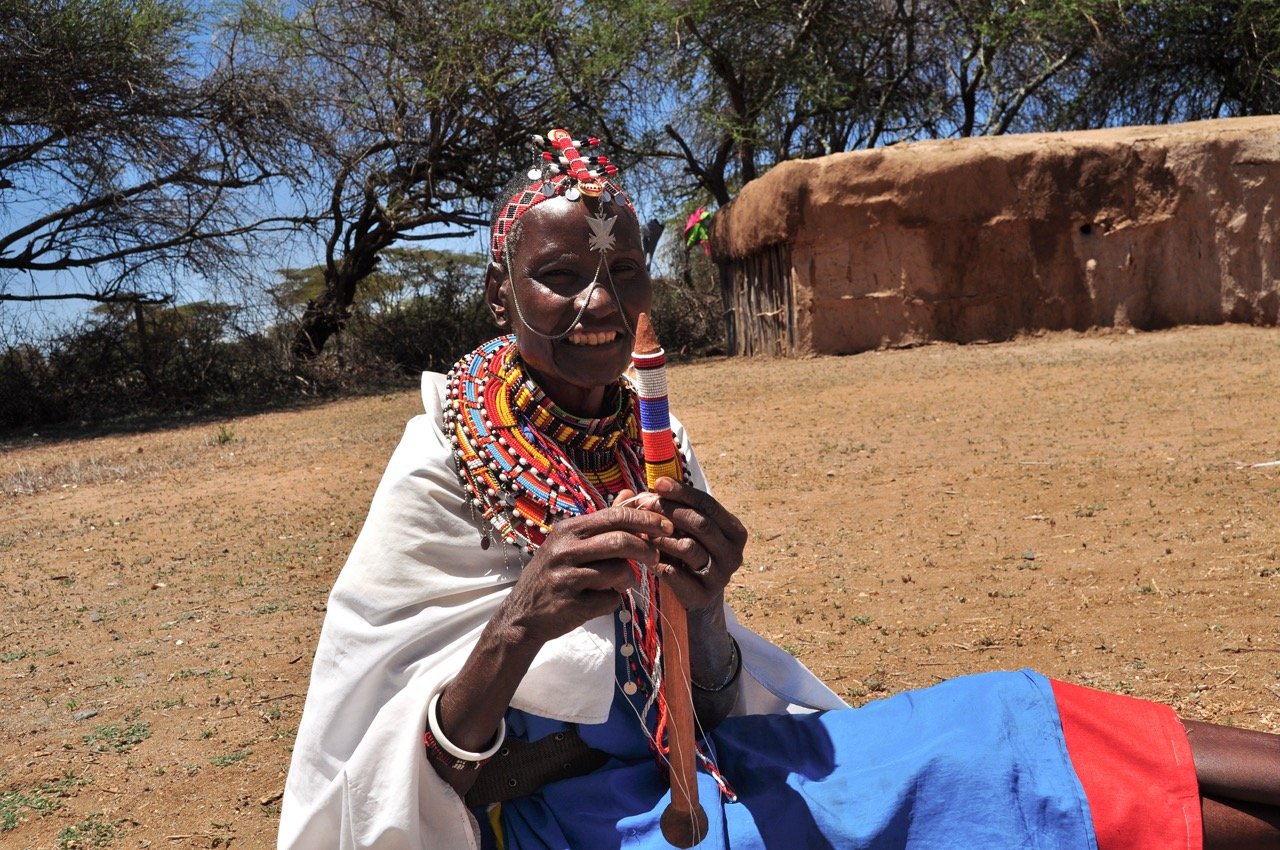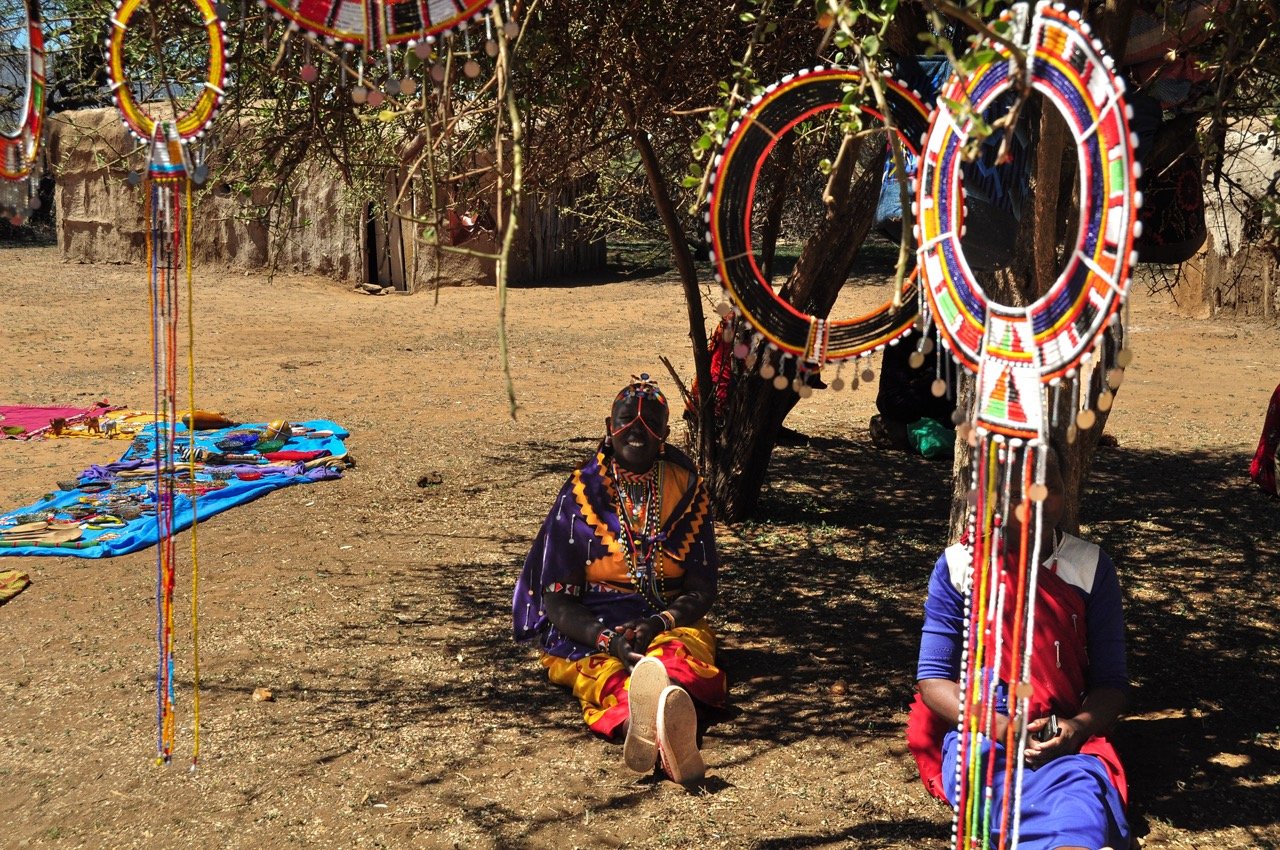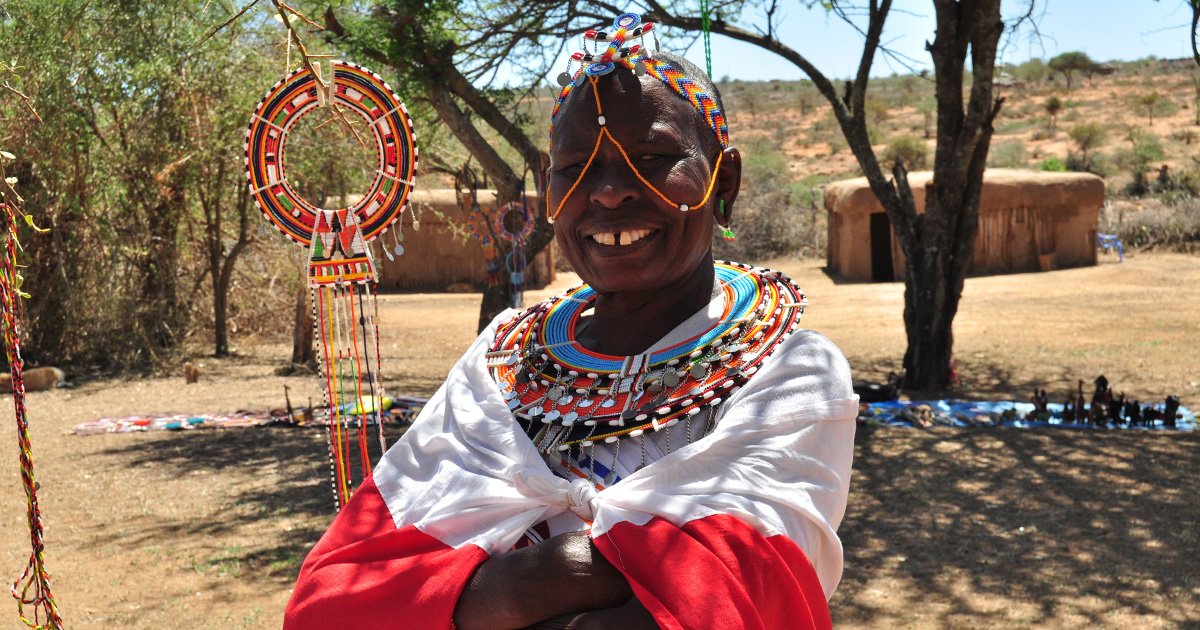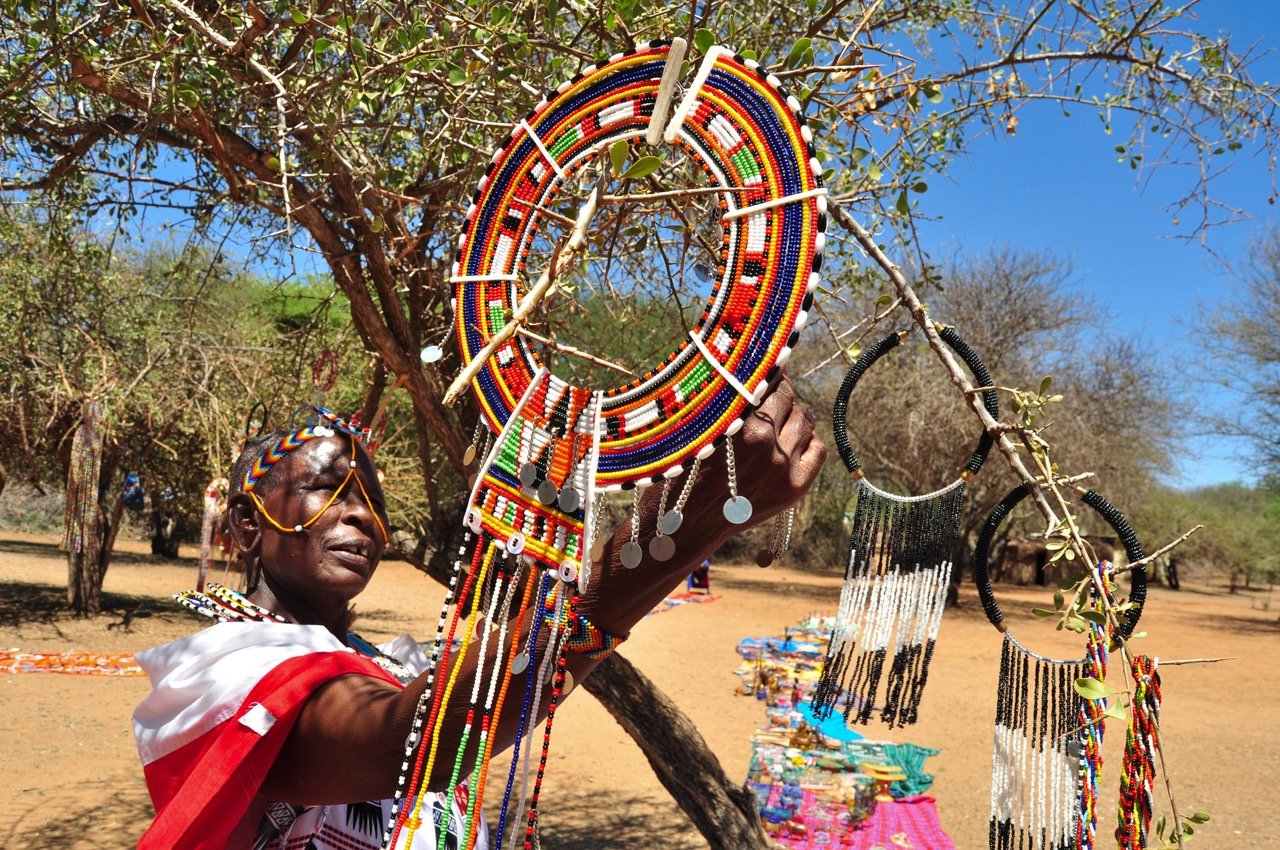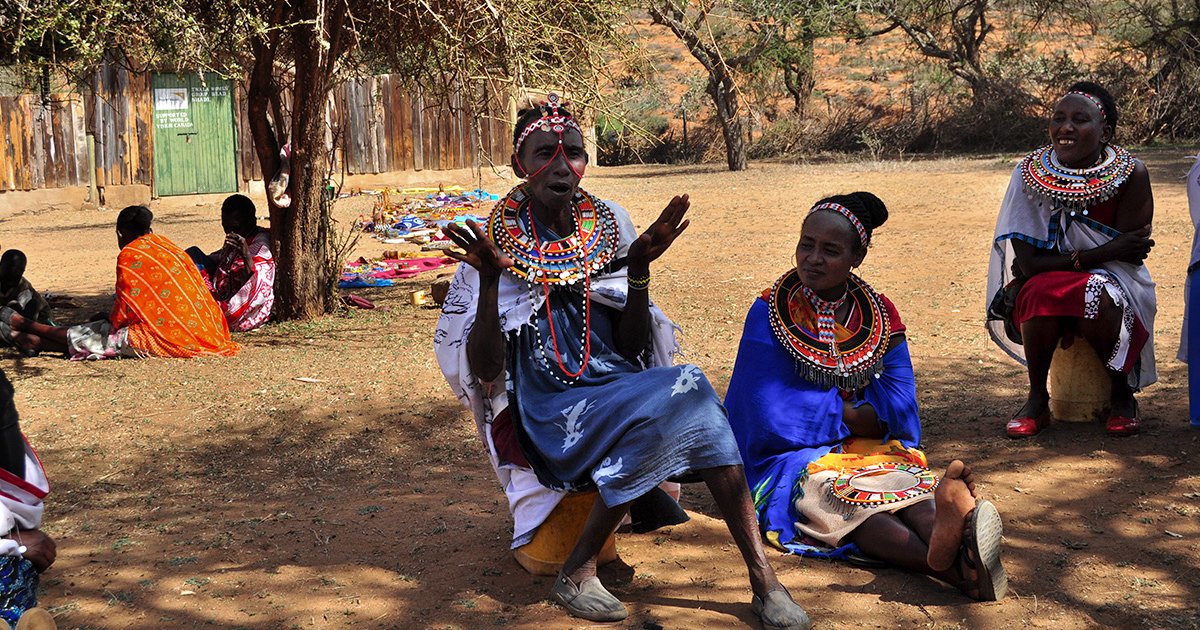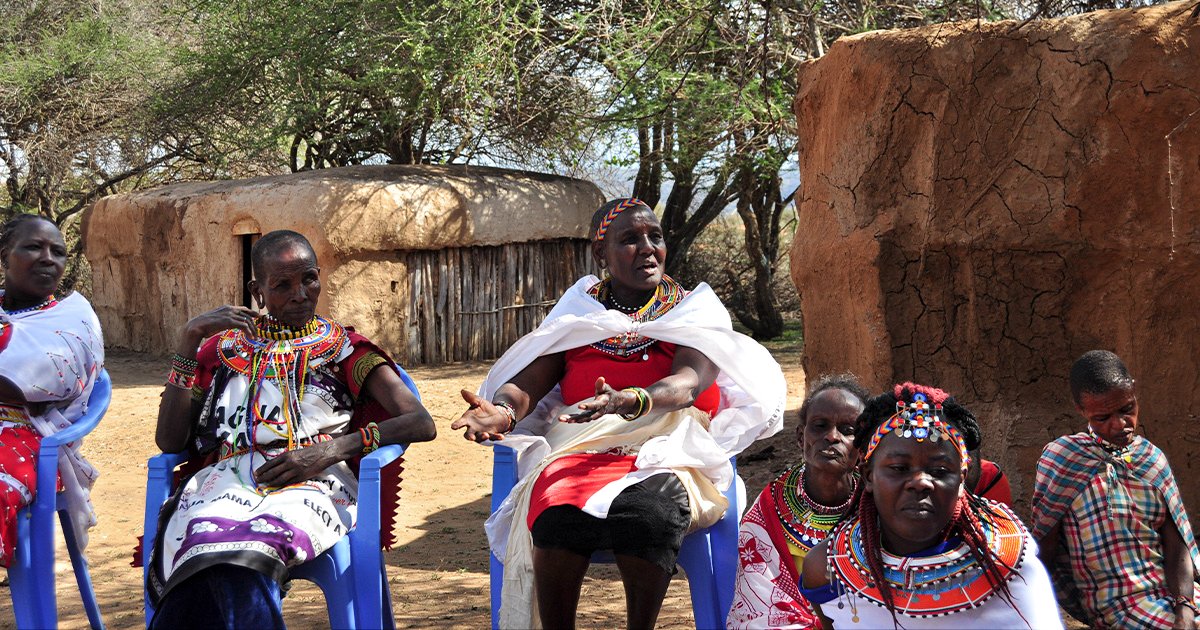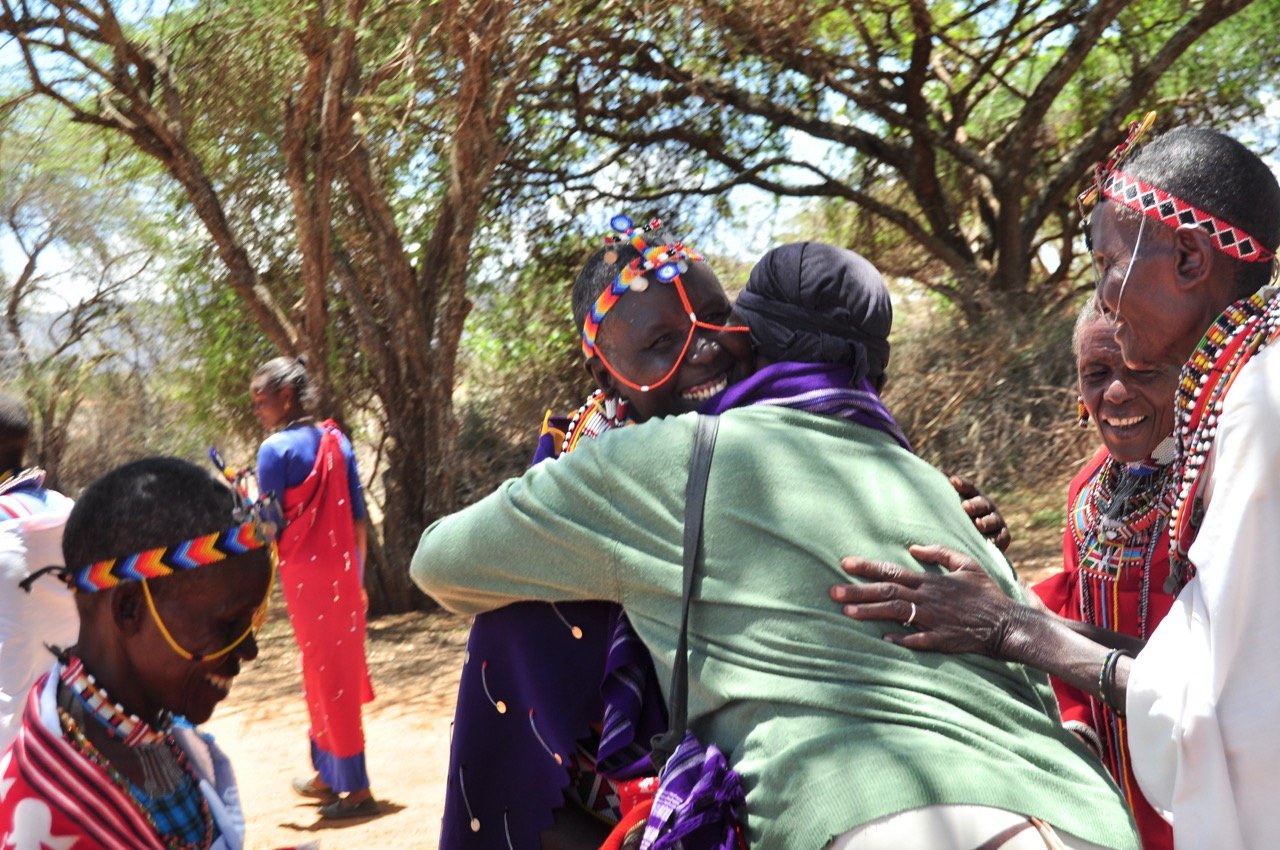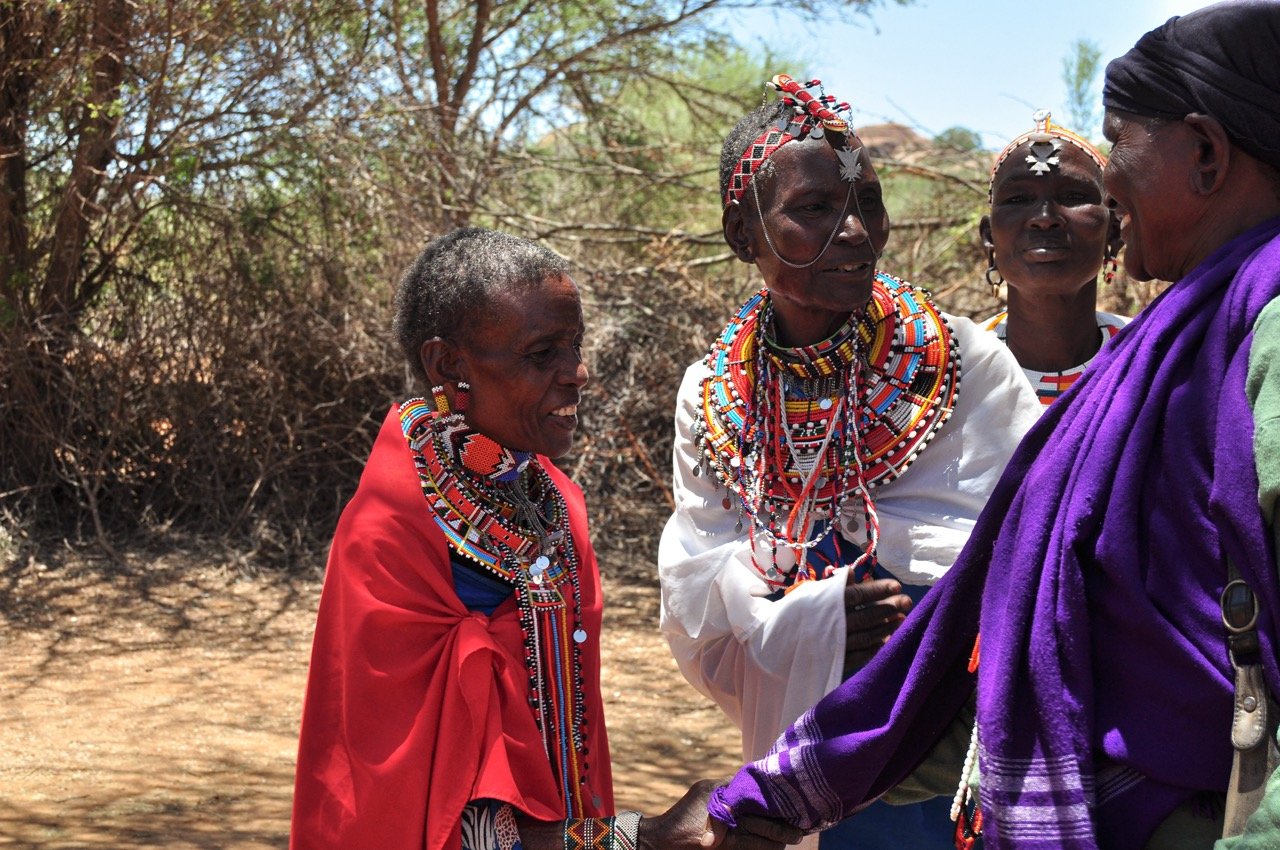Kenya: a bell to bring us together
I ended my travelling through East Africa between August and October 2022 by visiting three Community-Based Tourism (CBT) projects in Kenya.
Differently from the other stories I have contributed here, this time I feel the need to go deeper into one of the grassroots experiences I had there. This is the tale of my first indigenous community visit in Kenya, one that touched me very profoundly as a woman, and a story which I know I won’t get tired of telling – at least not until I pay them another visit.
Following Noltiga Pere on the dry riverbed
Walking Meditation
She looked directly into my eyes and softly spoke some words in her own language; her eyes were sparkling. She then asked for the help of Rosemary to translate her request. She wanted to show me something. She waited for my smile of approval and started walking slowly in front of me. We left the small group of the other women behind, still in the presentation circle that my host Rosemary organised for me upon my arrival at the CBT project an hour earlier.
Noltiga Pere is a slender woman, and her long legs made her steps faster than mine. She noticed that and often turned over her shoulder to check on me when she showed me around. First, she pointed into the distance at the massive rock that was the reference point my driver used to orient himself and find his way here. The rock looked like a composition made of three giant 3D puzzle pieces, placed gently onto each other and kept in balance in that weird position by some strong invisible glue.
Her steps were calm but solid, holding the same energies that I had perceived in her eyes since our first contact. The red and black chequered blanket she wore around her shoulders – as is the custom with her people – was undulating in front of me like a magic flying carpet, showing me the way on the arid, reddish soil.
I soon realised that we were walking on a riverbed, and the vegetation on its banks showed evident signs of drought. I was trying hard to understand why I was there, why she had taken me there, and what I was missing. Lost in my thoughts, I was struggling with the lack of common language and the urgent need to say something: ask questions, share my thoughts or comment on what was around us. I didn’t notice the same struggle in her, though – she seemed unconcerned with the absence of words. My attempts to contribute with words quickly vanished as I began to appreciate the silent, welcoming tour she had gifted to me.
As soon as my mind went quiet, new sounds and images appeared. Pebbles creaking under the pressure of my feet; black and white birds gliding around, surfing on smooth waves of wind; stripes of pink rising in the sky. One step followed another. Every sound became strangely amplified as if someone had added a noise cancellation effect to the scene. Suddenly I realised that the answers I was anxiously looking for in my head, might have been just there, under my nose, all the time.
Noltiga Pere
She was an empowered woman, simply caring for her new Sicilian guest. Only an empowered and self-confident woman, in fact, would have taken a stranger for a walk around her place without the worry of being judged or misunderstood. Perhaps she was simply doing what seemed a normal thing for her: acting on her kindness.
In the next couple of days, I would discover that she was not the only one holding that power in her, but that she shared that power with all her community. During the meetings and the workshops I would have with the other women, in the shade of the big acacia trees in their cultural manyatta, I would discover the reasons why this was and how different it used to be.
Adding Layers of Meaning
Over the years, I have worked with local communities in Brazil and Rwanda, and I was in contact with many other indigenous communities in Latin America, as well as the African and Asian continents. Due to my profession and the type of engagement I create with communities, I often encounter stories of women empowerment. The more I travel and visit indigenous and rural communities, the more the concept grows new layers of meaning in the pages of my vocabulary, especially when intertwined with Community-Based Tourism practices.
The Twala Tenebo project contributed to this with a strong realisation; it taught me that women empowerment can simply mean having the chance to express which parts of one’s culture can be accepted, without denying others, but most importantly, while strengthening rather than losing one’s identity.
The Project
Twala Tenebo is a women-owned-and-led Community-Based Tourism (CBT) project established in 1998 in the Laikipia region, Northwest of Mount Kenya. It is run on a piece of land that the women, after years of requests, community meetings and discussions, were eventually able to buy from the men in their community – for whom the ownership of land is traditionally exclusively reserved. On this vast piece of land, they have built the basis of what I think is a small cultural revolution, creating new paths for their own empowerment.
The walk with the baboons, the bee-keeping project, the organic production of aloe vera, the traditional singing and dancing and the original beadwork creation they design and sell to the travellers. These are a few of the tourism activities run directly by the women and offered through the project. Enjoyable and entertaining for the visitors, the activities and the other micro projects developed on the premises bring unimaginable opportunities for the local women as well. Having spent time with them, I can tell that what the visitors see represents only the tip of the iceberg of the real value that the project brings to its protagonists.
I am an Entrepreneur now!
The opportunity for self-empowerment came to them, first and foremost, by having a place to go outside of their homes, where they could gather with other women. Here they share their struggles as well as new ideas and – as they showed me – they also learn and pass on new skills among themselves. Today they see themselves as unfanibiaxara (Business Women), ‘owning and milking their own cow’, as vividly expressed by one of the women. Today they are financially independent from their husbands and able to choose their own destiny.
(Pictured Above: Discussion during the Community Storytelling Workshop Elisa organised at Twala Tebebo)
‘I am an entrepreneur now, I know how to run my own business’, says Joyce, arms crossed in front of her chest, projecting a satisfied smile. She is the lady who carefully dressed me up with their traditional rope and homemade jewellery, shortly after I left my luggage in my bungalow. I remember I felt like I was the subject of an official coronation. My smile spread from ear to ear for hours. Joyce’s destiny was decided when she was born. As the first daughter, she had the ‘privilege’ of receiving the baton and continuing the profession that her mother, in turn, had learnt from her mother. She was the ‘community doctor’ responsible for performing the Female Genital Mutilation (FGM) procedure on other women. In the community that is a notable job, and it is also very lucrative. That was part of the cultural tradition she belongs to, and was literally born into. In the past, it was unthinkable that this would ever change or to even think that it could be any different. But now, things are slowly beginning to change.
Together, we laugh!
Togetherness (Tenebo in the Ma language) was the bell (Twala) that gave them new eyes on their own culture from a safe distance, from which they could recognise limits and potential, but also find the courage to plant new seeds for the next generation of female warriors. When I asked them what the project meant to them, they answered that it brought them together, quite literally. Before this, they had little or no time to visit each other’s homes or spend time together. ‘Before,’ they continued, ‘We were meeting only for weddings or other celebrations. Now we meet each other here – and some of us, including Noltiga Pere, live here in the huts we built – and we laugh together.’
Today they don’t need to continue being passively exposed to the practice of FGM, which sadly is still carried out in some remote villages in Kenya. They recognise now that this is a violation of their human rights, but this has been a process. Rosemary, who initially invited me, is the strong and tireless leader of this project. It is she who has faced and argued, with endless determination, with the traditional male powers in her communities. It is also she who has had long and sensitive conversations with the women about their health, safety, sexual education and basic rights.
With her sweet, high-pitched voice and a constant smile on her face, I hear her saying loudly with all her inner strength, ‘I am a proud Maasai woman,’ and without falling into any spiritual contradictions she can declare, ‘I love my cultural roots, but this [practice] is not right.’
Together, we sing!
Step by step, on that uneven ground, in those last few hours of light of that October afternoon, with warm colours gradually painting the horizon behind the acacia trees, I kept following the rhythm of my Maasai lady guide. Moving slowly on the riverbed next to footprints left by the elephants the day before, the calm and steady pace of her footsteps became mine, and we continued walking together.
Every time she turned to me to show me the place with her gentle smile, I saw her pride mixed with curiosity about me, and a steady openness that comes only from someone who has walked on many unstable roads and can now stand on the solid ground which she has built for herself – but not alone.
Together, we grow!
“As a part of the Travel Matters team of Travel Advisors, I would love to share my knowledge on Community-Based Tourism and help you tailor your next responsible trip to Kenya and of course, plan your visit to Twala Tenebo Cultural Manyatta”
If you want to contact Elisa, please feel free to make an Enquiry today!
(This blog has been written by Elisa Spampinato, a travel writer & Community Storyteller, CEO & Founder at Traveller Storyteller. Photo Credits by Elisa Spampinato)





